- Home
- Robert B. Parker
Family Honor
Family Honor Read online
SUNNY RANDALL
“can hold her own with Spenser...
It’s clear that [Parker] has another winner.”
—The Boston Globe
“One of the best in years
from the dean of American private eye writers.”
—Publishers Weekly
“This is vintage Robert Parker.”
—The Indianapolis Star Weekly
“Wonderfully diverting.”
—The Washington Post
“Sleek and seductive.”
—Publishers Weekly
“Lots of action.”
—USA Today
Praise for Family Honor
“A master of the genre at work.” —Chicago Sun-Times
“One of the best in years from the dean of American private eye writers.” —Publishers Weekly
“A swell read, and one that promises future installments.” —New York Daily News
“What if Spenser were a woman? Chances are he’d walk and talk just like Sunny Randall.” —Kirkus Reviews
“Parker knows a good thing when he writes it.” —USA Today
“[Sunny Randall] can hold her own with Spenser. . . . It’s clear that [Parker] has another winner.” —The Boston Globe
“This is vintage Robert Parker.” —The Indianapolis Star
“Lots of action.” —Los Angeles Times
“His finest yet.” —The Buffalo News
“Parker’s terse dialogue and minimal descriptions move the story at a brisk clip, and the mystery holds the reader’s interest to the last page.” —The Tampa Tribune
“Sunny and breezy . . . Parker fans who ride this smoothly constructed glider won’t get their hair mussed.” —Minneapolis Star-Tribune
“Parker fans will . . . happily go along with this gender-crossing debut.” —Chicago Tribune
“This is Parker, then, softened, sharp, bright as ever.” —The Hartford Courant
“Fast-paced action and smart-mouthed dialogue.” —San Francisco Examiner
“An entirely likeable character . . . surrounded by an even more interesting and amusing supporting cast.” —St. Petersburg Times
“Parker has come up with another entertaining mix.” —Rocky Mountain News
“Parker delivers his freshest, most original, and innovative work since he introduced Spenser.” —Ft. Lauderdale Sun-Sentinel
“A successful series begins with the creation of a compelling protagonist, a task Parker handles admirably. Spenser, please move over.” —The San Diego Union-Tribune
“[Sunny] Randall is tough but sensitive. . . . Has the Parker trademarks of crisp dialogue and wit.” —San Antonio Express-News
THE SPENSER NOVELS
Sixkill
Painted Ladies
The Professional
Rough Weather
Now & Then
Hundred-Dollar Baby
School Days
Cold Service
Bad Business
Back Story
Widow’s Walk
Potshot
Hugger Mugger
Hush Money
Sudden Mischief
Small Vices
Chance
Thin Air
Walking Shadow
Paper Doll
Double Deuce
Pastime
Stardust
Playmates
Crimson Joy
Pale Kings and Princes
Taming a Sea-Horse
A Catskill Eagle
Valediction
The Widening Gyre
Ceremony
A Savage Place
Early Autumn
Looking for Rachel Wallace
The Judas Goat
Promised Land
Mortal Stakes
God Save the Child
The Godwulf Manuscript
THE JESSE STONE NOVELS
Split Image
Night and Day
Stranger in Paradise
High Profile
Sea Change
Stone Cold
Death in Paradise
Trouble in Paradise
Night Passage
THE SUNNY RANDALL NOVELS
Spare Change
Blue Screen
Melancholy Baby
Shrink Rap
Perish Twice
Family Honor
THE VIRGIL COLE/
EVERETT HITCH NOVELS
Blue-Eyed Devil
Brimstone
Resolution
Appaloosa
ALSO BY ROBERT B. PARKER
A Triple Shot of Spenser
Double Play
Gunman’s Rhapsody
All Our Yesterdays
A Year at the Races
(with Joan H. Parker)
Perchance to Dream
Poodle Springs
(with Raymond Chandler)
Love and Glory
Wilderness
Three Weeks in Spring
(with Joan H. Parker)
Training with Weights
(with John R. Marsh)
Family Honor
Robert B. Parker
BERKLEY BOOKS, NEW YORK
THE BERKLEY PUBLISHING GROUP
Published by the Penguin Group
Penguin Group (USA) Inc.
375 Hudson Street, New York, New York 10014, USA
Penguin Group (Canada), 90 Eglinton Avenue East, Suite 700, Toronto, Ontario, M4P 2Y3, Canada (a division of Pearson Penguin Canada Inc.)
Penguin Books Ltd, 80 Strand, London WC2R 0RL, England
Penguin Group Ireland, 25 St. Stephen’s Green, Dublin 2, Ireland (a division of Penguin Books Ltd.)
Penguin Group (Australia), 250 Camberwell Road, Camberwell, Victoria 3124, Australia (a division of Pearson Australia Group Pty. Ltd.)
Penguin Books India Pvt. Ltd., 11 Community Centre, Panchsheel Park, New Delhi—110017, India
Penguin Group (NZ), 67 Apollo Drive, Rosedale, North Shore 0632, New Zealand (a division of Pearson New Zealand Ltd.)
Penguin Books (South Africa) (Pty.) Ltd., 24 Sturdee Avenue, Rosebank, Johannesburg 2196, South Africa
Penguin Books Ltd., Registered Offices: 80 Strand, London WC2R 0RL, England
This is a work of fiction. Names, characters, places, and incidents either are the products of the author’s imagination or are used fictitiously, and any resemblance to actual persons, living or dead, business establishments, events, or locales is entirely coincidental. The publisher does not have any control over and does not assume any responsibility for author or third-party websites or their content.
FAMILY HONOR
A Berkley Book/published by arrangement with the author
PRINTING HISTORY
G. P. Putnam’s Sons hardcover edition/September 1999
Berkley mass-market edition/November 2000
Berkley premium edition/March 2008
Copyright © 1999 by Robert B. Parker.
Excerpt from Robert B. Parker’s Blood Feud copyright © 2018 by The Estate of Robert B. Parker
All rights reserved.
No part of this book may be reproduced, scanned, or distributed in any printed or electronic form without permission. Please do not participate in or encourage
piracy of copyrighted materials in violation of the author’s rights. Purchase only authorized editions.
For information, address: The Berkley Publishing Group,
a division of Penguin Group (USA) Inc.,
375 Hudson Street, New York, New York 10014.
ISBN: 978-1-101-54637-6
BERKLEY®
Berkley Books are published by The Berkley Publishing Group,
a division of Penguin Group (USA) Inc.,
375 Hudson Street, New York, New York 10014.
BERKLEY® is a registered trademark of Penguin Group (USA) Inc.
The “B” design are trademarks belonging to Penguin Group (USA) Inc.
Version_5
For Joan: I concentrate on you.
Contents
Praise for Robert B. Parker
Also by Robert B. Parker
Title Page
Copyright
Dedication
Prologue
CHAPTER 1
CHAPTER 2
CHAPTER 3
CHAPTER 4
CHAPTER 5
CHAPTER 6
CHAPTER 7
CHAPTER 8
CHAPTER 9
CHAPTER 10
CHAPTER 11
CHAPTER 12
CHAPTER 13
CHAPTER 14
CHAPTER 15
CHAPTER 16
CHAPTER 17
CHAPTER 18
CHAPTER 19
CHAPTER 20
CHAPTER 21
CHAPTER 22
CHAPTER 23
CHAPTER 24
CHAPTER 25
CHAPTER 26
CHAPTER 27
CHAPTER 28
CHAPTER 29
CHAPTER 30
CHAPTER 31
CHAPTER 32
CHAPTER 33
CHAPTER 34
CHAPTER 35
CHAPTER 36
CHAPTER 37
CHAPTER 38
CHAPTER 39
CHAPTER 40
CHAPTER 41
CHAPTER 42
CHAPTER 43
CHAPTER 44
CHAPTER 45
CHAPTER 46
CHAPTER 47
CHAPTER 48
CHAPTER 49
CHAPTER 50
CHAPTER 51
CHAPTER 52
CHAPTER 53
CHAPTER 54
CHAPTER 55
CHAPTER 56
CHAPTER 57
CHAPTER 58
CHAPTER 59
CHAPTER 60
Excerpt from Robert B. Parker’s Blood Feud
About the Author
Their last months together had been gothic. Both of them had avoided being home, and the house in Marblehead with the water view had stood, more empty than occupied, both emblem and relic of their marriage. They had been much younger than their neighbors when they’d moved in, freshly married, twenty-three years old, the house purchased for cash with money from her in-laws. They had drunk wine in the living room and looked straight out over the Atlantic and held hands and made love in front of the fireplace, and thought about forever. Nine years is a little short of forever, she thought. She had refused alimony. Richie had refused the house.
Now she was carefully bubble-wrapping her paintings and leaning them carefully against the wall where the movers could pick them up when they came. Each painting had a FRAGILE sticker on it. Her paints and brushes were boxed and taped and stood beside the paintings. The house was silent. The sound of the ocean only made it seem more silent. The sun was streaming in through the east windows. Tiny dust motes glinted in it. The sun off the water made a kind of backlighting, diffusing the sunlight, and filling in where there would have been shadows. Her dog sat on her tail watching the packing, looking a little nervous. Or was that projection?
When she had married Richie, her mother had said, “Marriage is a trap. It stifles the potential of womanhood. You know what they say, a woman needs a man like a fish needs a bicycle.” Sunny had said, “I don’t think they say that too much anymore, Mother.” But her mother, the queen of doesn’t-get-it, paid no attention. “A woman needs a man like a fish needs a bicycle,” she had said.
When Sunny had announced nine years later that she and Richie were divorcing, her mother had said, “I’m very disappointed. Marriage is too hard to be left to men. It is your job to make it work.” That was her mother. She could disapprove of the marriage and disapprove of the divorce that ended it. Her father had been simpler about both. “You should do what you want,” he had said of her marriage and of her divorce and of everything else in her life. “You need help, I’ll help you.”
Her parents were so strangely unsuitable for each other. Her mother was a vocal feminist who had married a policeman at the end of her junior year in college. Her mother had never held a paying job, and had never, as far as her daughter could tell, ever written a check, or changed a tire. Her husband had taken care of her as he had taken care of his two daughters, completely and without comment, which probably gave her the time to be a feminist. He was straight ahead and calm. He said little. What he did say, he meant.
He rarely talked about his job. But he would often come home and eat supper in his shirtsleeves with his gun still on his belt. Her mother would always remind him to take it off. The gun seemed to Sunny the visible symbol of him, of his power, as her therapist had pointed out during her attempt to save the marriage, of his potency. If that were true Sunny had often wondered what it meant that her mother wouldn’t let him wear it to the table. But it was never clear what her mother meant. It was clear what she wanted to mean. Her mother was verbal, combative, theoretical, filled with passion over every new idea, and, Sunny smiled to herself, sad to say, most ideas were pretty new to her mother. Her mother wanted to be a new woman, abreast of every trend, in touch with the range of experience from supermodels to theoretical physics. But she never penetrated any of the ideas she embraced very deeply. Probably, Sunny thought, because she was so desperately shouting, “See me, look at me.” If her father noticed any of his wife’s contradictions, he didn’t comment. He appeared to love her thoroughly. And whether she loved him, or simply needed him completely, Sunny’s mother seemed as committed to him as he was to her. They had been married for thirty-seven years. It was probably what Sunny had had in mind when she and Richie had talked about “forever.”
Christ, didn’t we fight over Daddy, Sunny thought, all three of us.
She leaned the last painting against the living room wall. She leaned the folded easel against the wall beside them. The furniture was gone. The rugs were up. The red oak floor gleamed. Without anything in the empty rooms to buffer sound, the dog’s claws rattled loudly as she trotted behind Sunny.
Sunny’s sister was four years older than she was. God, she must have hated me when I was born, Sunny thought. It doubled the competition for Daddy. To win him, they had devised different methods as they had grown up. Her mother, impregnably married to him, persisted serenely in her noisy self-contradictions. Elizabeth, apparently convinced that nothing succeeded like success, tried to be like her. By default Sunny was left to emulate her father. Their mother dressed them both in pinafores and Mary Janes. Their father had built them a large dollhouse, and Elizabeth, with her long curls, had spent hours with it, manipulating her dollies. Sunny had worn her pinafores to the pistol range with Daddy, and while she was too female to be butch, she reveled in the androgyny of her nickname. And she learned to shoot. If one approach worked better than another, it was never evident. Her father persisted in loving his daughters as unyieldingly as he loved their mother. There was something frustrating in it. What you did didn’t matter, he loved you whatever you did.
In the echoing kitchen, there were only the plates and glasses to pack. Sunny took them
down, one at a time, and wrapped them in newspaper and put them in the cartons. The movers would have done it, but she wanted to do it herself. Somehow it seemed the right transition from one life to another. She was hungry. In the refrigerator, there was a half-empty jug of white wine, some Syrian bread, and a jar of all-natural peanut butter. She had some bread and peanut butter, and poured herself a glass of jug wine. Beyond the window over the sink she could see the rust-colored rocks stoically accepting the waves that broke in upon them and foamed and slid away. The dog pushed at Sunny’s ankle with her nose. Sunny gave her some bread. Way out along the horizon a fishing boat moved silently. The dog ate her bread and went to her water dish and drank noisily for a long time. Sunny poured another glass of wine.
She had become a cop, the year before her marriage. Two years after her father was promoted to Area D commander. Her mother had asked if she were a lesbian. Sunny had said no. Her mother had seemed both relieved and disappointed. Disappointed, Sunny thought, that she couldn’t martyr herself to her daughter’s preference for women. Relieved that she didn’t have to. Her mother had said, what about painting? Sunny had said she could do both. What about marriage and children? Sunny wasn’t ready. The clock is ticking. Mother, I’m twenty-two. She remembered wondering if women needed children like fish needed bicycles, but she kept it to herself. The fishing boat had moved maybe an inch across the horizon. She took her wine and went and sat on the floor beside the dog with her knees up and gazed out through the French doors while she drank.
Richie was like her father; she’d known that even before she went to the therapist. He didn’t say much. He was inward and calm and somehow a little frightening. And like her father, he was very much straight ahead, going about his business, doing what he did, without paying much attention to what other people thought or did about it. It was what he did that was one of the issues. He worked in the family business, and the family business was crime. He didn’t do crime. She believed that when he told her. He ran some saloons that the family owned. But . . . she poured some more wine from the jug into her glass. There was a sort of ravine behind the house that ran down to the ocean, and the waves as they rolled into it sent up a harsh spray. Sitting on the floor she could see only the spray, disembodied from the ocean, appearing rhythmically above the slipping lawn. . . . It wasn’t really that he was from a crime family any more than it was that she was from a cop family. It had to do with much tougher stuff than that and she’d learned early in their separation not to pretend that it was just cops versus robbers. A gull with a white chest and gray wings settled down past her line of vision and disappeared into the ravine and came back up with something in its mouth and flew away. Richie loved her, she knew he did. The fact that her father had spent a lifetime trying to jail his father didn’t help, but that wasn’t what felt so sharp and sore in her soul. Richie was so closed, so interior, so certain of how things were supposed to go, so too much like her father that she felt as if she was dwindling every year they were together, smaller and smaller.

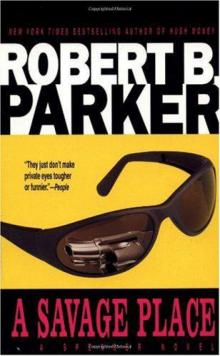 A Savage Place s-8
A Savage Place s-8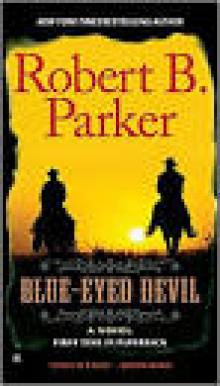 Appaloosa / Resolution / Brimstone / Blue-Eyed Devil
Appaloosa / Resolution / Brimstone / Blue-Eyed Devil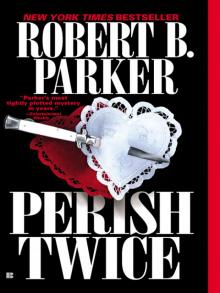 Perish Twice
Perish Twice Spare Change
Spare Change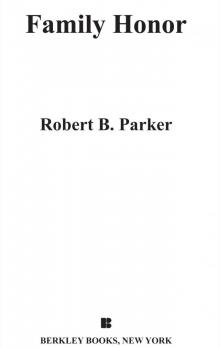 Family Honor
Family Honor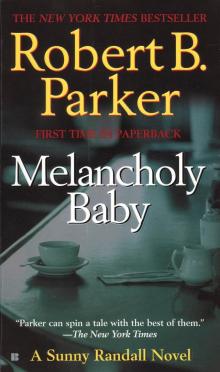 Melancholy Baby
Melancholy Baby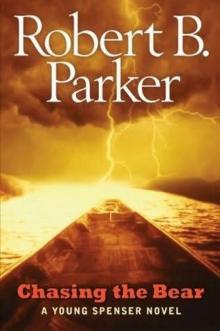 Chasing the Bear
Chasing the Bear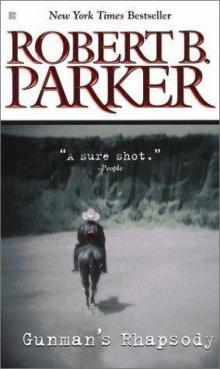 Gunman's Rhapsody
Gunman's Rhapsody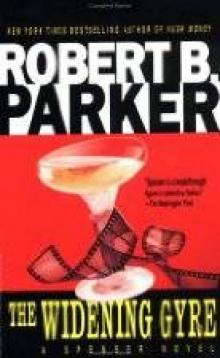 The Widening Gyre
The Widening Gyre Thin Air
Thin Air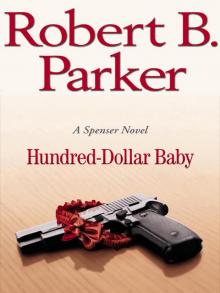 Hundred-Dollar Baby
Hundred-Dollar Baby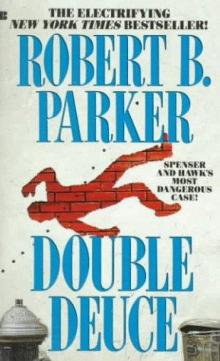 Double Deuce s-19
Double Deuce s-19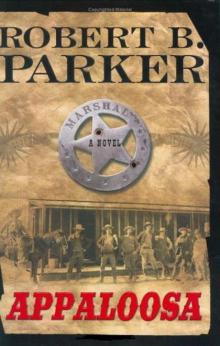 Appaloosa vcaeh-1
Appaloosa vcaeh-1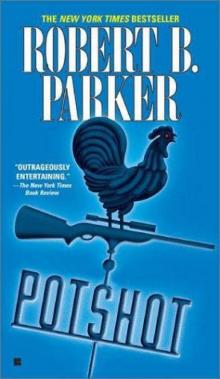 Potshot
Potshot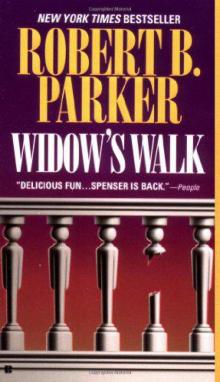 Widow’s Walk s-29
Widow’s Walk s-29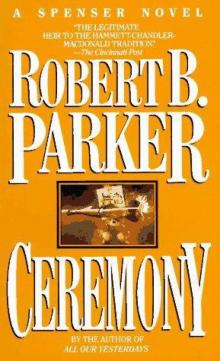 Ceremony s-9
Ceremony s-9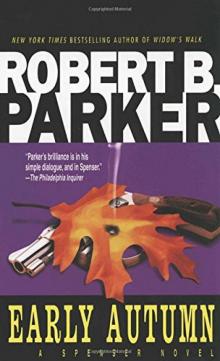 Early Autumn
Early Autumn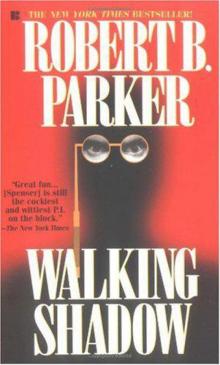 Walking Shadow s-21
Walking Shadow s-21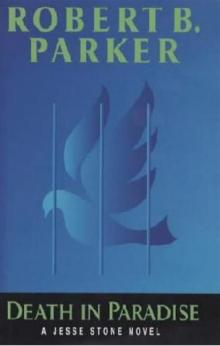 Death In Paradise js-3
Death In Paradise js-3 Shrink Rap
Shrink Rap Blue-Eyed Devil
Blue-Eyed Devil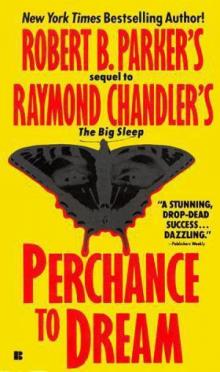 Perchance to Dream
Perchance to Dream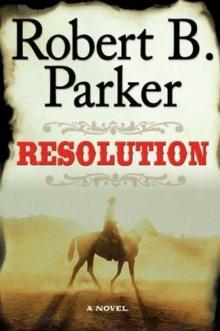 Resolution vcaeh-2
Resolution vcaeh-2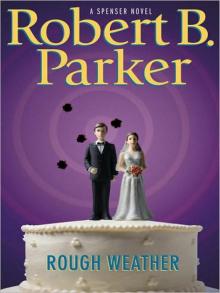 Rough Weather
Rough Weather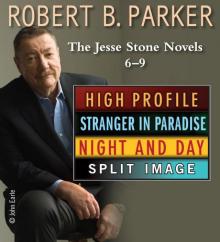 The Jesse Stone Novels 6-9
The Jesse Stone Novels 6-9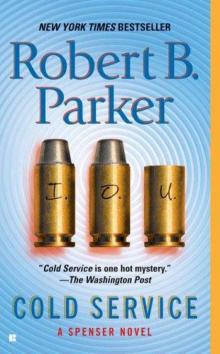 Cold Service s-32
Cold Service s-32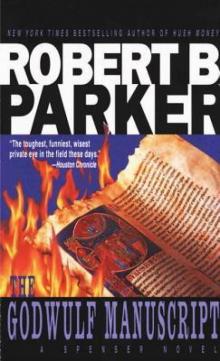 The Godwulf Manuscript
The Godwulf Manuscript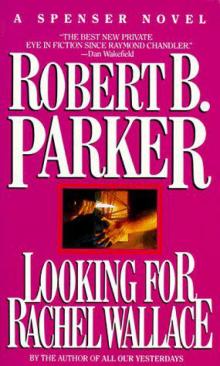 Looking for Rachel Wallace s-6
Looking for Rachel Wallace s-6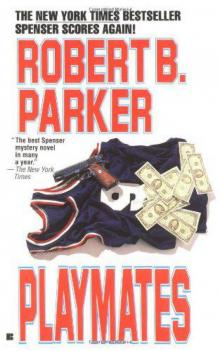 Playmates s-16
Playmates s-16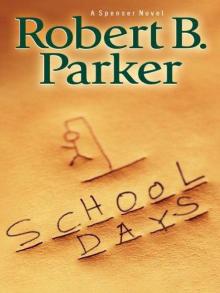 School Days s-33
School Days s-33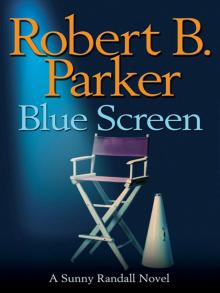 Blue Screen
Blue Screen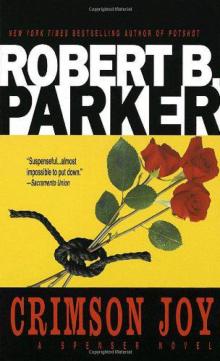 Crimson Joy
Crimson Joy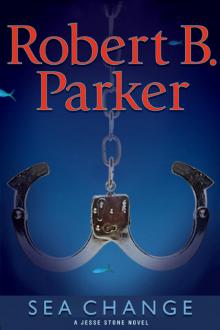 Sea Change js-5
Sea Change js-5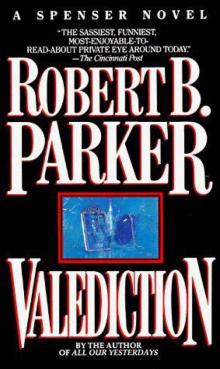 Valediction s-11
Valediction s-11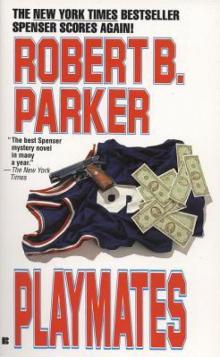 Playmates
Playmates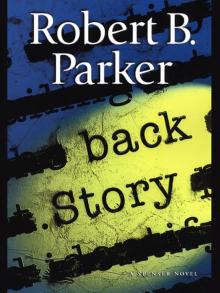 Back Story
Back Story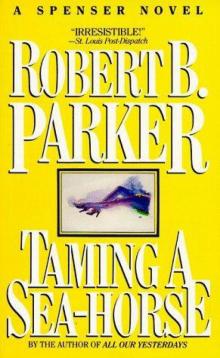 Taming a Sea Horse
Taming a Sea Horse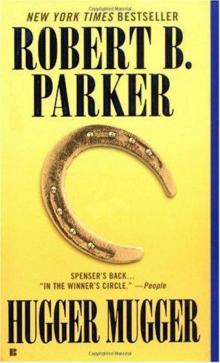 Hugger Mugger
Hugger Mugger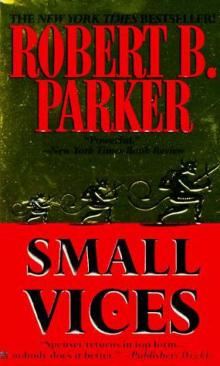 Small Vices s-24
Small Vices s-24 Silent Night: A Spenser Holiday Novel
Silent Night: A Spenser Holiday Novel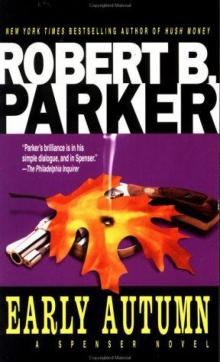 Early Autumn s-7
Early Autumn s-7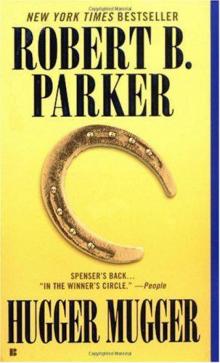 Hugger Mugger s-27
Hugger Mugger s-27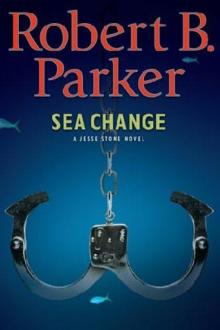 (5/10) Sea Change
(5/10) Sea Change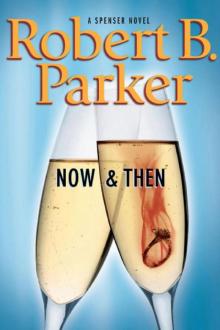 Now and Then
Now and Then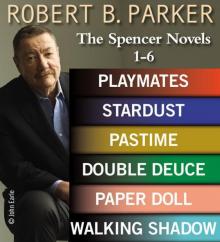 Robert B. Parker: The Spencer Novels 1?6
Robert B. Parker: The Spencer Novels 1?6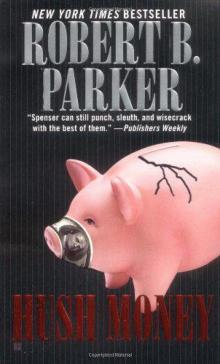 Hush Money s-26
Hush Money s-26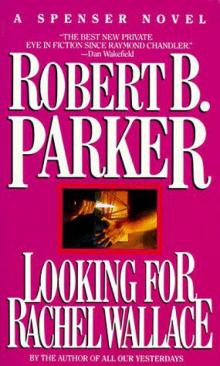 Looking for Rachel Wallace
Looking for Rachel Wallace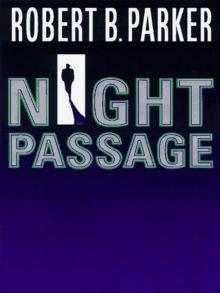 Night Passage
Night Passage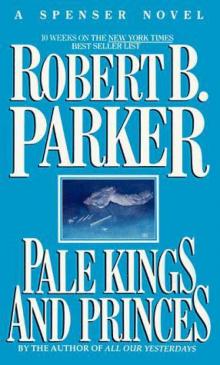 Pale Kings and Princes
Pale Kings and Princes All Our Yesterdays
All Our Yesterdays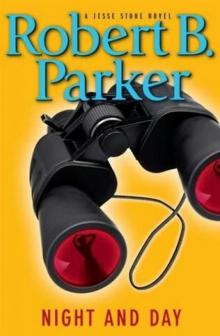 Night and Day js-8
Night and Day js-8 Stranger in Paradise js-7
Stranger in Paradise js-7 Double Play
Double Play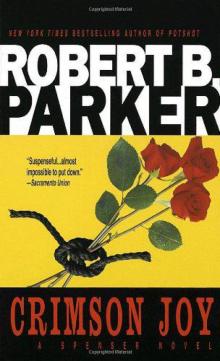 Crimson Joy s-15
Crimson Joy s-15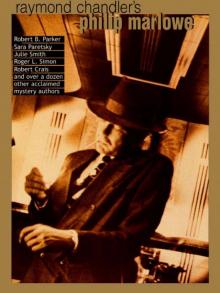 Raymond Chandler's Philip Marlowe
Raymond Chandler's Philip Marlowe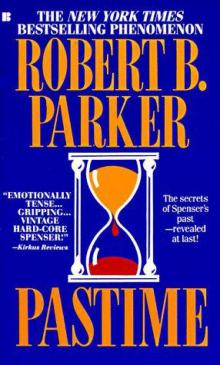 Pastime
Pastime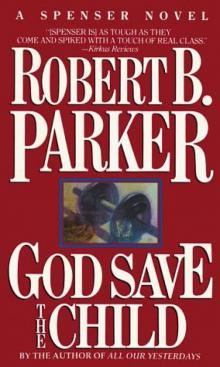 God Save the Child s-2
God Save the Child s-2 Bad Business
Bad Business Trouble in Paradise js-2
Trouble in Paradise js-2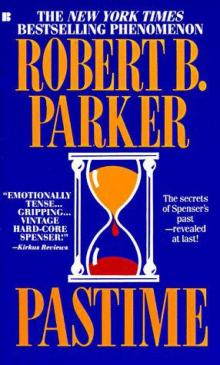 Pastime s-18
Pastime s-18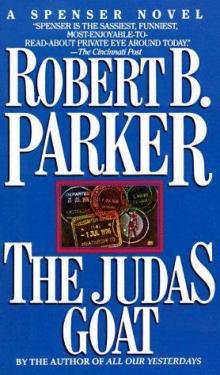 The Judas Goat s-5
The Judas Goat s-5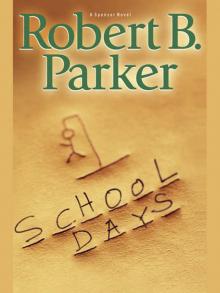 School Days
School Days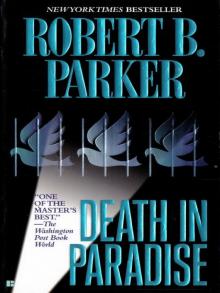 Death In Paradise
Death In Paradise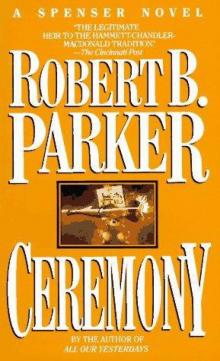 Ceremony
Ceremony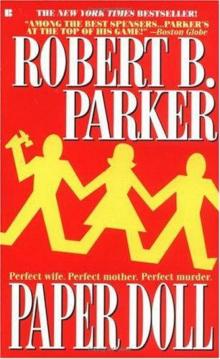 Paper Doll s-20
Paper Doll s-20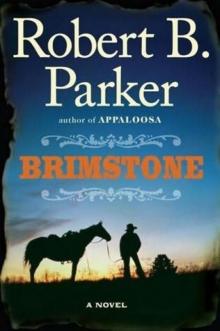 Brimstone vcaeh-3
Brimstone vcaeh-3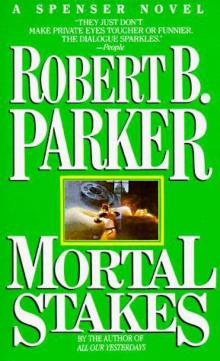 Mortal Stakes s-3
Mortal Stakes s-3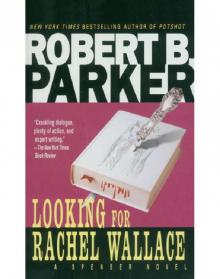 Spencer 06 - Looking for Rachel Wallace
Spencer 06 - Looking for Rachel Wallace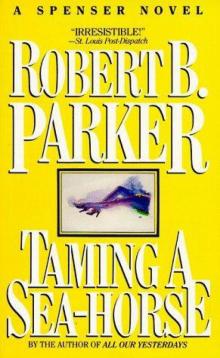 Taming a Sea Horse s-13
Taming a Sea Horse s-13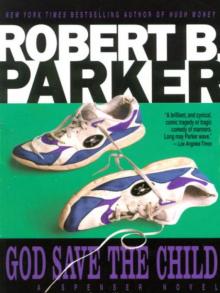 God Save the Child
God Save the Child Chance
Chance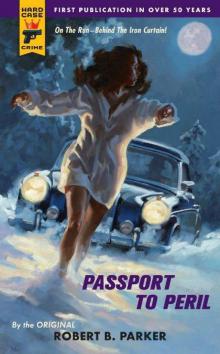 Passport To Peril hcc-57
Passport To Peril hcc-57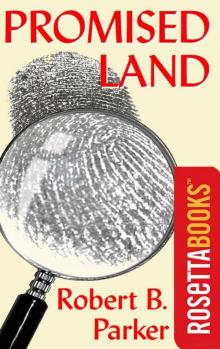 Promised Land
Promised Land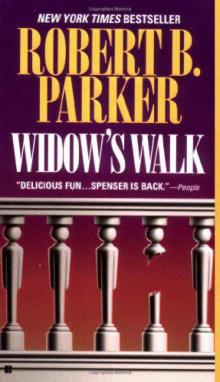 Widow’s Walk
Widow’s Walk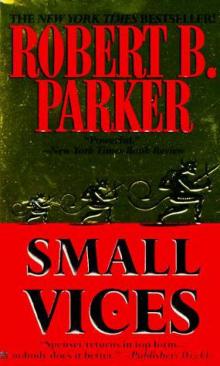 Small Vices
Small Vices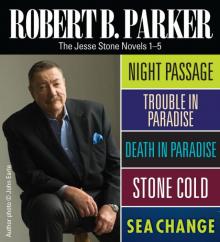 Robert B Parker: The Jesse Stone Novels 1-5
Robert B Parker: The Jesse Stone Novels 1-5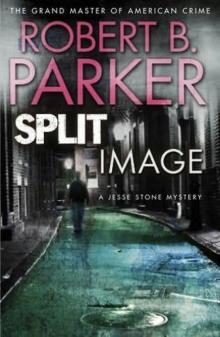 Split Image js-9
Split Image js-9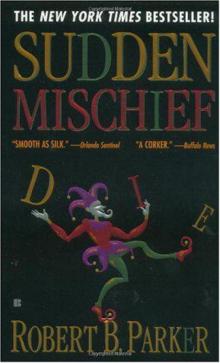 Sudden Mischief s-25
Sudden Mischief s-25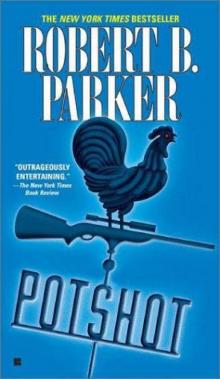 Potshot s-28
Potshot s-28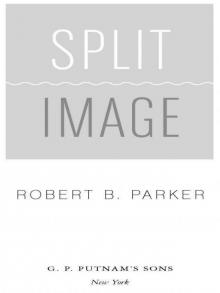 Split Image
Split Image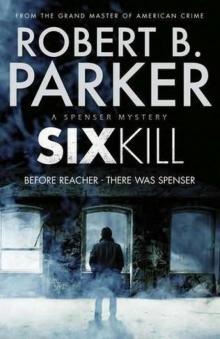 Sixkill s-40
Sixkill s-40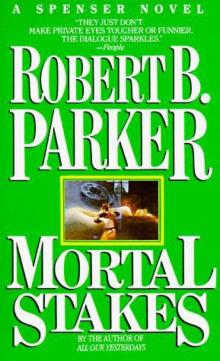 Mortal Stakes
Mortal Stakes Stardust
Stardust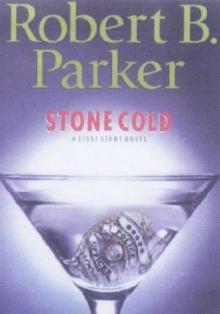 Stone Cold js-4
Stone Cold js-4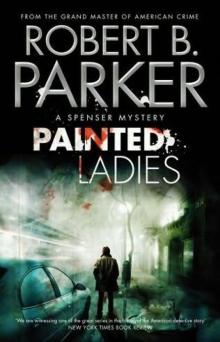 Painted Ladies s-39
Painted Ladies s-39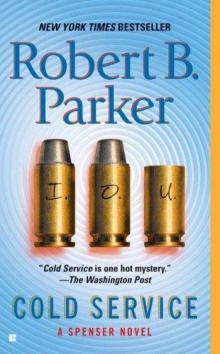 Cold Service
Cold Service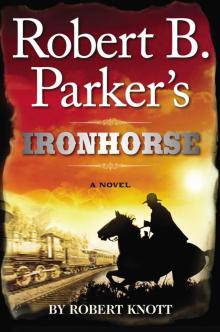 Ironhorse
Ironhorse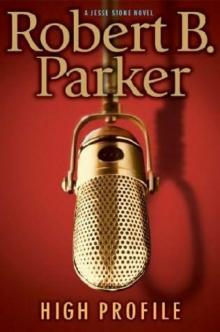 High Profile js-6
High Profile js-6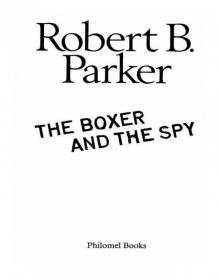 The Boxer and the Spy
The Boxer and the Spy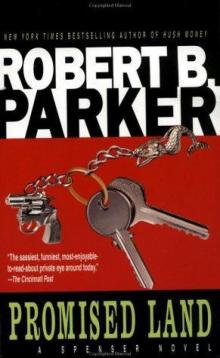 Promised Land s-4
Promised Land s-4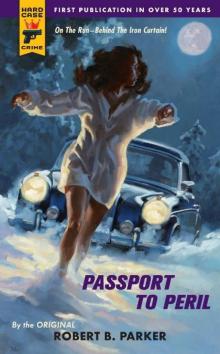 Passport to Peril (Hard Case Crime (Mass Market Paperback))
Passport to Peril (Hard Case Crime (Mass Market Paperback))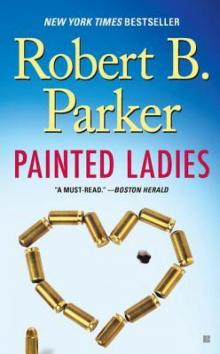 Painted Ladies
Painted Ladies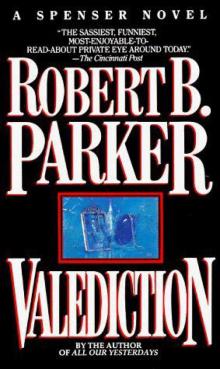 Valediction
Valediction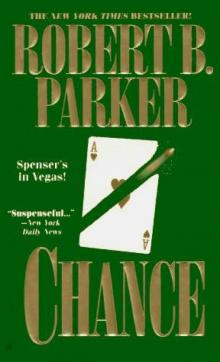 Chance s-23
Chance s-23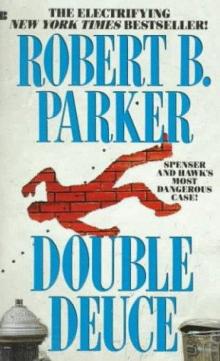 Double Deuce
Double Deuce Wilderness
Wilderness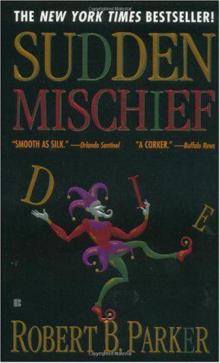 Sudden Mischief
Sudden Mischief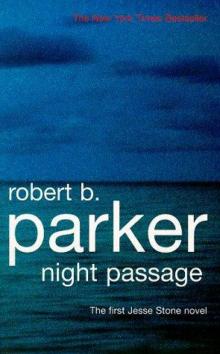 Night Passage js-1
Night Passage js-1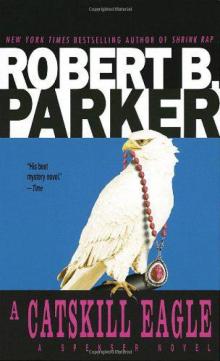 A Catskill Eagle
A Catskill Eagle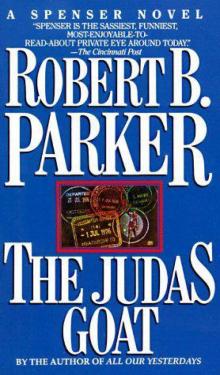 The Judas Goat
The Judas Goat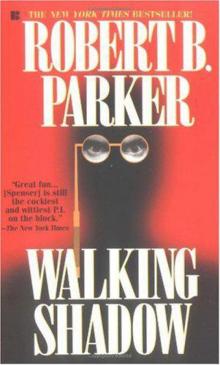 Walking Shadow
Walking Shadow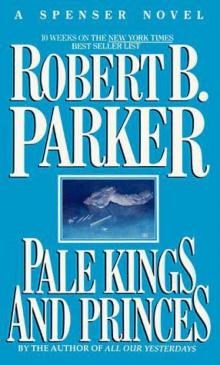 Pale Kings and Princes s-14
Pale Kings and Princes s-14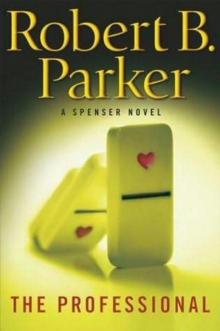 The Professional
The Professional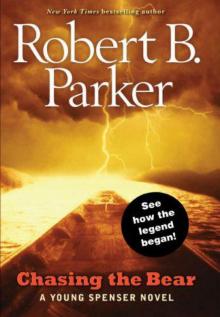 Chasing the Bear s-37
Chasing the Bear s-37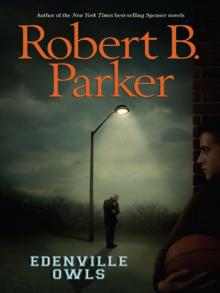 Edenville Owls
Edenville Owls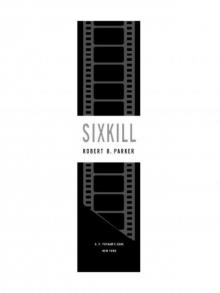 Sixkill
Sixkill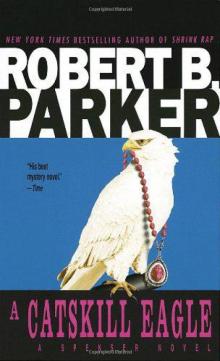 A Catskill Eagle s-12
A Catskill Eagle s-12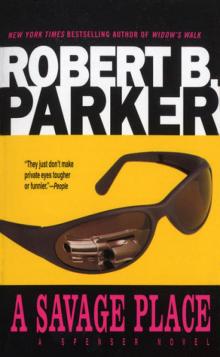 A Savage Place
A Savage Place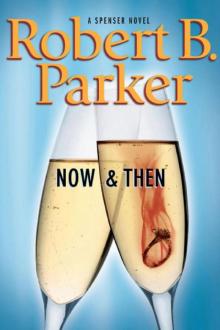 Now and Then s-35
Now and Then s-35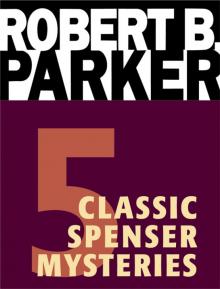 Five Classic Spenser Mysteries
Five Classic Spenser Mysteries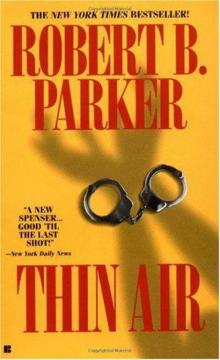 Thin Air s-22
Thin Air s-22